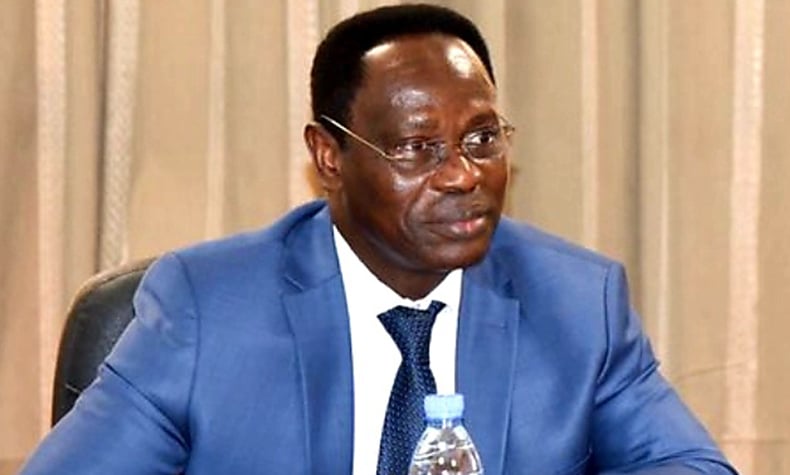
Effective communication by leaders can make or break public trust during times of national crisis, when fear, uncertainty, and frustration predominate.
While decisive action and clear communication are important, Ghanaian leaders have been using humour, a less common tactic, more and more to engage the general public during difficult times.
From the COVID-19 epidemic to economic instability humour has become an effective tool for crisis communication, reducing stress, promoting unity, while strengthening the integrity of leaders.
Humor in Leadership: A Cultural Tradition
Ghanaians are known for their vibrant sense of humour, which permeates daily life, from conversations in marketplaces to debates in Parliament.
Historically, humour has played a key role in Ghanaian society, serving as a coping mechanism during difficult times and a medium for addressing sensitive issues.
Leaders tapping into this cultural trait have often found that humor can bridge the gap between the government and its citizens, making even the harshest realities more palatable.
COVID-19: When Humor Met Public Health
During the height of the COVID-19 pandemic, Former President Nana Akufo-Addo’s addresses to the nation were notable not only for their clarity and seriousness but also for their occasional injection of humor.
In one memorable broadcast, the former president urged Ghanaians to comply with safety protocols, stating with a smile, “We know how to show love without hugging.” This light-hearted remark quickly went viral, helping to drive home an important message while reducing public anxiety.
Commenting on the former president’s communication style, political analyst Dr. Kwesi Owusu remarked, “The use of humor during such a tense period helped people feel connected to their leader, making the government’s directives more relatable and less imposing.”
Economic Challenges: Laughing Through the Hard Times
In 2022, as Ghana faced rising inflation and a depreciating cedi, Finance Minister at that time, Ken Ofori-Atta drew both criticism and praise for using humor during parliamentary sessions. When asked about the government’s strategies to stabilize the economy, he quipped, “We are working around the clock, but unfortunately, clocks don’t print money.”
While some viewed this as an attempt to deflect serious concerns, others appreciated the levity, noting that it helped soften the blow of tough economic realities.
Citizens on social media were quick to respond with memes and jokes, transforming a tense situation into a more bearable one.
The Dual Power of Humor: Connection and Criticism
Humour, however, is a double-edged sword. While it can build connection, it can also invite criticism, especially if perceived as inappropriate or dismissive.
For instance, Former Vice President Dr. Mahamudu Bawumia, known for his witty jabs during political rallies, has occasionally faced backlash for using humor during discussions on serious issues such as inflation and youth unemployment.
Critics argue that while humour has its place, over-reliance on it can undermine the gravity of national challenges.
Despite these criticisms, many communication experts believe that humor, when used appropriately, can be a valuable asset in crisis communication.
“Leaders who use humor effectively demonstrate emotional intelligence. It shows they understand the mood of the nation and can connect with people on a human level,” said communication strategist Lydia Mensah.
Social Media Amplification
The impact of humour in crisis communication has been amplified by social media. In Ghana, where platforms like Twitter and TikTok are popular, humorous remarks by leaders are often transformed into viral memes, songs, and videos.
This creates a ripple effect, ensuring that key messages reach a wider audience in a format that resonates with younger demographics.
For instance, when President John Mahama once joked about politicians’ promises during an election campaign, social media users turned his remarks into sarcastic content, sparking a national conversation about political accountability.
Balancing Humor with Gravitas
While humour can be a useful tool, experts caution that it must be balanced with seriousness, especially during crises involving loss of life or significant hardship.
Leaders must be careful not to appear out of touch or flippant about the struggles of ordinary citizens.
According to Dr. Grace Oppong, a lecturer in political communication, “Humor must never replace substance. It can complement serious communication by lightening the mood, but leaders must ensure that their core message is not lost in the laughter.”
Conclusion: A Unique Leadership Style
In Ghana, humour has proven to be more than just entertainment; it is a vital component of leadership and crisis communication. By using humor strategically, leaders can build trust, defuse tension, and foster a sense of unity during challenging times.
However, as with any tool, its effectiveness depends on timing, context, and delivery.
As Ghana continues to navigate complex national challenges, the blend of humour and seriousness in leadership communication will likely remain a defining feature of the country’s political landscape.
For citizens, it offers not only a moment of levity in difficult times but also a reminder that even in crises, laughter can be a powerful force for resilience.
By: Elsie Nana Adjoa Aidoo
The post How Ghanaian leaders use humour in Crisis Communication first appeared on 3News.
Read Full Story























Facebook
Twitter
Pinterest
Instagram
Google+
YouTube
LinkedIn
RSS